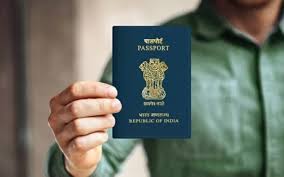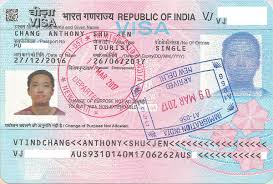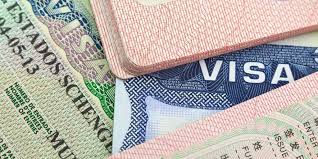Ultimate Guide: How to Extend Indian Visa Without Hassle
If you are in India and need to stay beyond your visa’s expiration date, you must understand the process of How to extend Indian Visa. Whether for tourism, business, medical treatment, or other purposes, extending your visa legally is crucial. In this guide, we will cover the types of visa extensions, eligibility criteria, application process, necessary documents, fees, and common mistakes to avoid. By following these steps, you can ensure a smooth and legal stay in India.
Understanding Indian Visa Extensions
Before applying for an extension, it is essential to know whether your visa type allows extensions. Some visa categories, such as e-visas, tourist visas, and business visas, have specific rules regarding extensions.
Which Indian Visas Can Be Extended?
Not all Indian visas are eligible for an extension. The following categories can usually be extended:
- Tourist Visa: Rarely extended except in exceptional circumstances (e.g., natural disasters or medical emergencies).
- Business Visa: Extensions may be granted if the applicant provides a valid reason, such as ongoing business activities.
- Medical Visa: Eligible for extension based on medical needs, supported by hospital documents.
- Student Visa: Can be extended as long as the student continues their studies at a recognized institution.
- Employment Visa: Extensions are possible if the applicant remains employed with a registered Indian company.
Which Indian Visas Cannot Be Extended?
- E-Visa (Electronic Visa): No extensions are allowed. Visitors must leave India and apply for a new visa.
- Transit Visa: These visas are issued for short periods and cannot be extended.
Eligibility Criteria for Indian Visa Extension
To extend your visa, you must meet specific criteria set by the Indian government:
- Your passport should be valid for at least six months beyond the extended period.
- You must not have overstayed your visa unlawfully.
- You should provide a legitimate reason for the extension.
- No criminal record or pending legal cases in India.
How to Extend Indian Visa – Step-by-Step Guide
Step 1: Apply Online Through FRRO
All visa extensions in India are managed by the Foreigners Regional Registration Office (FRRO). The process is entirely online and can be accessed through the FRRO/FRO e-FRRO portal.
- Visit the e-FRRO portal: https://indianfrro.gov.in
- Create an account and log in.
- Fill out the visa extension application form.
- Upload the required documents.
- Pay the extension fee online.
- Submit the application and wait for further instructions.
Step 2: Upload Required Documents
The following documents are typically required:
- A scanned copy of your passport (bio-data page and visa page).
- Recent passport-size photograph (as per Indian visa photo requirements).
- Proof of residence in India (rental agreement, hotel booking, or utility bill).
- Letter stating the reason for extension (from employer, hospital, or educational institution).
- Financial proof (bank statement or sponsorship letter).
Step 3: Pay the Visa Extension Fee
The visa extension fee varies based on the type of visa and duration of extension. Payments are made online through the FRRO portal. Indian Visa for Azerbaijan Citizens
Step 4: Wait for Approval from FRRO
The processing time can take 7-14 working days. You may be asked to appear for an interview or submit additional documents. If approved, you will receive an electronically extended visa.
Common Reasons for Indian Visa Extension
- Medical Emergencies
Foreigners receiving medical treatment in India can extend their Medical Visa with supporting hospital records.
- Business or Employment Purposes
If your business activities or employment contract are extended, you can apply for an extension with proper documentation from your employer.
- Educational Continuation
Students who need to complete their studies in India can extend their Student Visa with proof from their educational institution.
- Unexpected Travel Restrictions
In case of natural disasters, pandemics, or global emergencies, visa extensions may be granted.
How to Avoid Rejection of Visa Extension Request
- Apply before your visa expires: Late applications may lead to penalties or rejection.
- Provide accurate information: Any mismatch in details may result in rejection.
- Submit all required documents: Missing documents can delay or deny approval.
- Maintain a valid passport: Your passport should be valid for at least six months.
Overstaying in India – Penalties and Consequences
Overstaying in India without a valid visa extension can lead to:
- Fines: A penalty fee depending on the duration of overstay.
- Legal action: Possible detention or deportation.
- Future visa bans: Risk of being blacklisted from entering India again.
If you realize you have overstayed, contact FRRO immediately to regularize your stay and avoid severe penalties.
Alternatives to Extending Indian Visa
If you are unable to extend your visa, consider the following alternatives:
- Apply for a New Visa
Leaving India and applying for a fresh visa from your home country is often the best option.
- Convert Your Visa Type
In rare cases, visas can be converted. For example, a Tourist Visa can sometimes be converted into a Medical Visa for emergency medical treatment.
- Exit and Re-enter India
Some travelers exit India and apply for a new visa from nearby countries, such as Nepal or Sri Lanka. However, re-entry policies should be checked before making travel plans.
Final Thoughts on How to Extend Indian Visa
Understanding How to extend Indian Visa is crucial for foreigners who need a longer stay in India. By following the correct procedure through the FRRO portal, submitting necessary documents, and applying on time, you can legally extend your visa without issues. Always ensure compliance with Indian visa laws to avoid penalties and enjoy a hassle-free stay.


